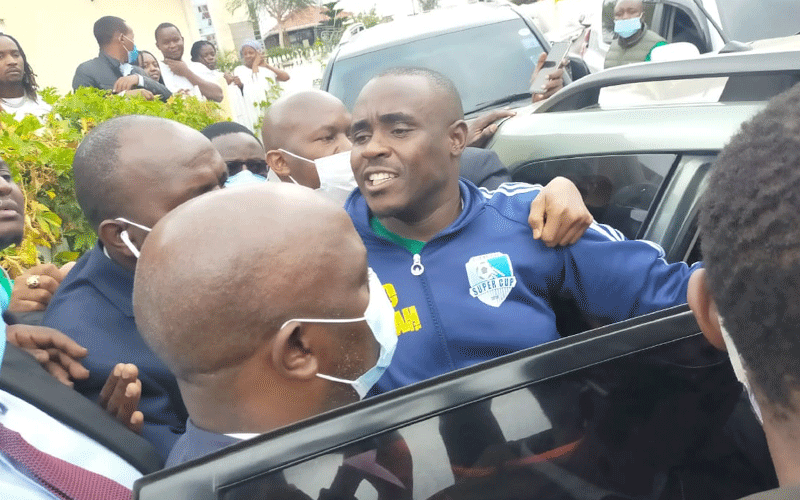Leaders must build avenue for civil rights respect
By Hesbon Owilla, August 21, 2020The last one week has seen us treated to what many have criticised as actions by the police that takes us back to the dark days of the one party de facto era when the second liberation heroes were clobbered and treated with brute force by the powers that be who out to protect their privileged position.
Today, in Constitution of Kenya, 2010 era, the sight of senators being bundled in police cars and allegations of intimidation are totally appalling.
Granted, no one is above the law and any Kenyan regardless of position in society is subject to rule of law and the state as the only agency allowed to use force in enforcing the rule of law should protect the rest of the citizenry from law breakers.
However, the arrest of Senators Cleophas Malala, Christopher Lang’at and Steve Lelengwe in fairly chilling and callous fashion at a time the revenue debate is hot in the public domain raises a lot of questions.
For instance, it difficult to reconcile the fact Senator Malala was arrested for flouting Covid-19 protocols yet the manner of his arrest was a conspicuous flouting of the same protocols.
It appears the arresting officers were acting on their own motion given all their superiors and CS interior have distanced themselves from the clampdown.
Critics have also argued – plausibly if I may say – that if ‘powers that be’ wanted to get the senators out of the debate, because of their position on it, they would have done so without the fuss we witnessed.
But that is beside the point. The focus here is our civil liberties as Kenyans.
We have surely come full cycle to understand political power is very fickle. The very people who were ‘yesterday’ calling for a benevolent dictator are now crying the loudest about the gains of the consitiution.
The folks, busy saying that Miguna Miguna was a security threat and the interest of the state was more important, are now the loudest about rights and civil liberties and rightly so.
Now I am not saying we should celebrate that some power wilders of ‘yesteryears’ are facing the wrath of a culture they instituted to protect their privileged position. Certainly not.
All I am saying is power and positions are fairly fickle and before you wield it as if you have it permanently, you need to ask yourself what if you were on the other side.
Granted, any senator, leader or ordinary Kenyan who breaks the law needs to be answerable, but our police service need to be alive to this current constitutional dispensation.
But I digress, let me make the point before I lose the plot. We have come full cycle and we need to seize this moment to remind ourselves it is and will never be about the positions we hold or the power we wield.
It is about the constitution and as one of my good friend succinctly puts it:
“The principal purpose of any good constitution is to safeguard the liberties of the citizens of the republic.”
Article 25 of our Constitution provides for non-derogable rights, and the police in their treatment of the citizenry need to be alive to these rights as enshrined in chapter four of the Bill of Rights.
A non-degorable right is a right that must not be taken away from the citizens.
The three senators might have contravened the laws of the land and it is the work of the state to protect all of us from law breakers, but this must be done in a manner that does not violate their rights.
Otherwise the government will be dealing with the embarrassment of police brutality and course of justice will shift to the flouting of fundamental rights by the police and not the real cause that warranted the arrest in the first place, even if it was a serious contravention of the law. — The writer is a PhD candidate in political communication
More Articles

